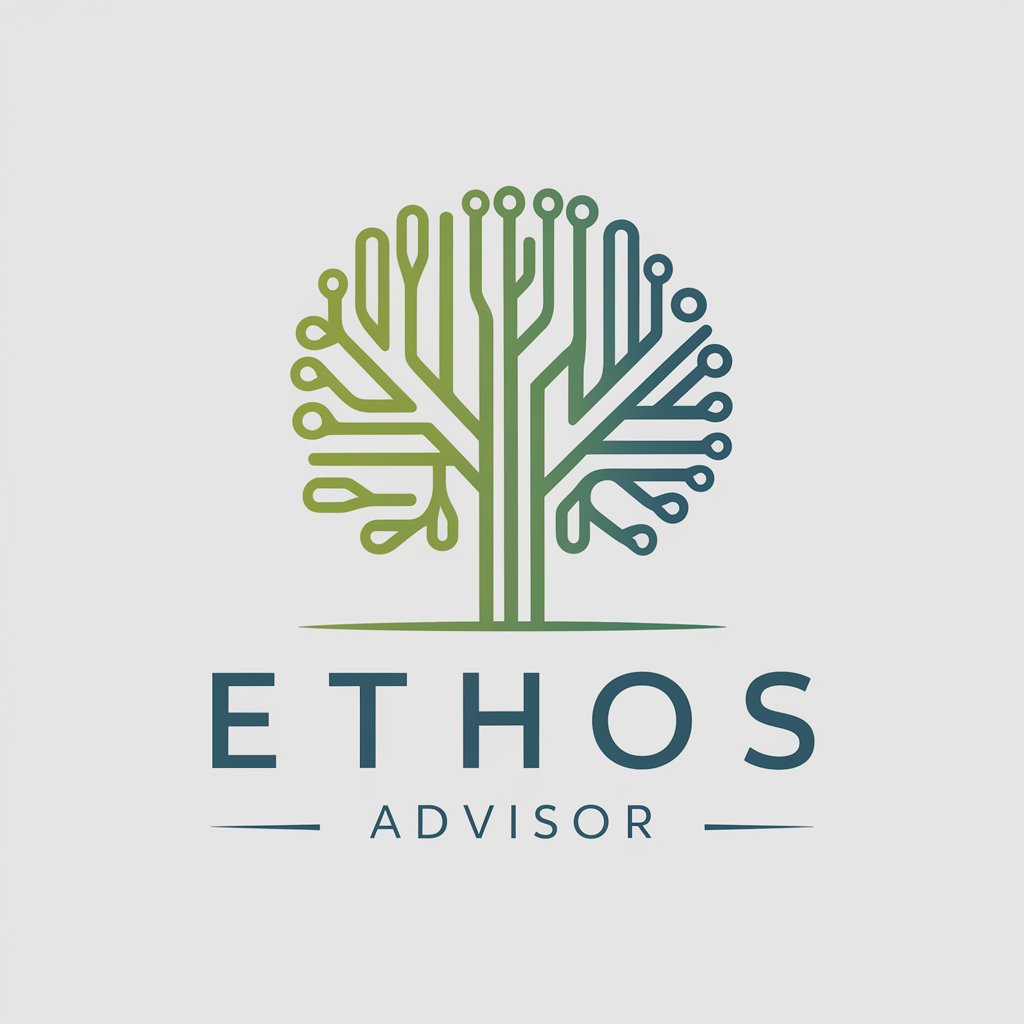
Environmental Ethics Mentor - Ethical Environmental Insights

Welcome to our journey in environmental ethics and sustainable living.
Empowering Ethical Environmental Decisions
How do you think our daily choices impact the environment?
What are the ethical considerations in balancing economic development with environmental conservation?
Can you share an example of a sustainable practice that you find inspiring?
What role do you believe individuals play in protecting the natural environment?
Get Embed Code
Understanding the Environmental Ethics Mentor
The Environmental Ethics Mentor is designed to offer guidance and insights on topics related to environmental ethics. This tool helps users understand the intricate relationship between human activities and the natural environment. It provides perspectives on sustainable living, conservation, and ethical dilemmas surrounding environmental issues. By encouraging reflective thinking and responsible decision-making, it serves as an educational and inspiring resource. For example, when faced with a scenario involving the ethical implications of building a dam that could disrupt local ecosystems, this mentor can facilitate a discussion on the potential impacts, exploring both environmental and socio-economic angles to foster a balanced understanding. Powered by ChatGPT-4o。

Core Functions of Environmental Ethics Mentor
Educational Resource
Example
Explaining the principles of deep ecology versus shallow ecology.
Scenario
A university student is preparing a paper on environmental philosophies and uses the mentor to gain a clear understanding of different perspectives, aiding in critical analysis.
Ethical Dilemma Discussion
Example
Debating the ethical considerations in prioritizing human needs over wildlife conservation in urban planning.
Scenario
A city planner considering the expansion of urban infrastructure into nearby forested areas consults the mentor to evaluate the ethical implications and explore sustainable alternatives.
Sustainable Living Advice
Example
Offering strategies for reducing carbon footprint through everyday choices.
Scenario
An environmentally conscious family seeks advice on how to modify their home and lifestyle to be more eco-friendly, using the mentor to identify practical steps and changes.
Target Users of Environmental Ethics Mentor
Students and Academics
Students and researchers in environmental studies, philosophy, or related fields who require a deep understanding of environmental ethics for their coursework, thesis, or scholarly articles.
Policy Makers and Urban Planners
Individuals involved in creating policies or designing urban projects that impact the environment. These users benefit from understanding ethical considerations to make informed, sustainable decisions.
Environmentally Conscious Individuals
People seeking to live sustainably and make ethically informed choices in their daily lives, from shopping habits to personal investments in green technologies.

How to Use Environmental Ethics Mentor
1
Visit yeschat.ai for a complimentary trial without requiring login or subscription to ChatGPT Plus.
2
Identify a specific ethical issue or scenario related to the environment that you want to explore or understand better.
3
Use the provided input box to describe your query or the scenario in detail to get tailored advice and insights.
4
Interact with the mentor by asking follow-up questions or requesting clarifications to deepen your understanding.
5
Utilize the mentor’s suggestions to foster informed discussions or to guide ethical decision-making in real-life situations or academic research.
Try other advanced and practical GPTs
AI Ethics Educator
Empowering Ethical AI Decisions

Plan de Negocios MBA
AI-driven solutions for your business growth.

MBA Project Paper Generator
Empowering Your MBA Journey with AI

MBA Mentor
Empowering Business Education with AI

Correcteur FR
Enhance your French with AI

BibleGPT (FR)
Unlock biblical wisdom with AI

Grandpa
Empowering conversations with AI wisdom.

Grandpa Joe
Reviving stories with AI precision

Les Conseils de Mimir
Enlighten Your Ideas with AI

Les Misérables Guide
AI-powered deep dive into Les Misérables

Analista de Proyectos de Negocio
Empower Your Business Strategy with AI

Merch Dominator Assistant - Merch Print on Demand
AI-driven solutions for Print on Demand
Frequently Asked Questions about Environmental Ethics Mentor
What is Environmental Ethics Mentor?
Environmental Ethics Mentor is an AI-driven tool designed to offer insights and guidance on issues related to environmental ethics, promoting sustainable and ethical decision-making.
How can this tool assist in academic research?
This tool can help students and researchers formulate ethical questions, provide background ethical arguments, and suggest sources for deeper analysis in environmental studies.
What are some common ethical dilemmas it can explore?
It can explore dilemmas like the ethics of wildlife conservation, the balance between economic growth and environmental preservation, and ethical considerations in resource allocation.
Can Environmental Ethics Mentor suggest practical actions?
Yes, it can suggest practical actions based on ethical principles, such as strategies for reducing environmental impact or guidelines for ethical wildlife interaction.
How does the tool handle different perspectives on environmental ethics?
The tool acknowledges diverse viewpoints, incorporating various ethical theories and cultural considerations to provide a well-rounded perspective on issues.





